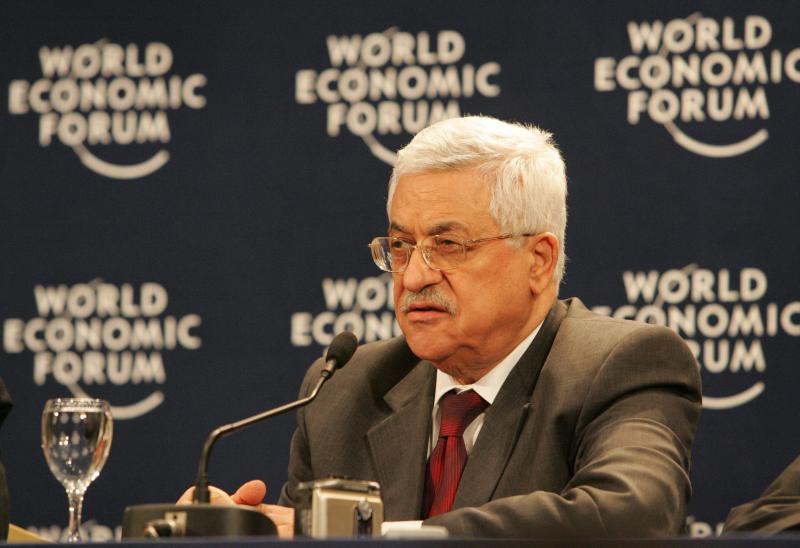By Martin Bunton
It may be premature to completely write off the recent round of the US-sponsored Israeli-Palestinian peace process. The talks faltered earlier this month when Israel failed to release a batch of prisoners, part of the initial basis for holding the negotiations launched last July. The rapidly disintegrating diplomacy may yet be salvaged. But the three main actors have already made it known they will pursue their own initiatives.
They each may think that their actions will allow them to accumulate more leverage, maybe help position themselves in anticipation of a resumption of bilateral negotiations which, for over twenty years now, has been directed towards establishing a Palestinian state living peacefully alongside Israel. But it is also possible that the steps the parties take will instead deepen the despair of a two state framework ever coming to fruition.

Benjamin Netanyahu
The United States will focus their attention to other pressing issues, such as securing a deal on Iran’s nuclear program. Progress on this front may encourage, perhaps even empower, the Obama administration to resume Israeli-Palestinian negotiations later in its term. But the chances of their success will depend less on yet another intense round of shuttle diplomacy by US Secretary of State John Kerry, and more on whether a distracted Obama presidency will be prepared to pressure Israel to end its occupation. True, Obama enjoys the freedom of a second term presidency (unconcerned about the prospects of re-election). So far however he hasn’t appeared at all inclined to challenge Israeli prime minister Benjamin Netanyahu.
As for Israel, the Netanyahu government will take steps to make life even harder for Palestinians under occupation, and no doubt further entrench its settlement infrastructure in the West Bank, the territory on which Palestinians want to build their own state. Netanyahu, now one of the longest serving prime ministers in Israeli history, has provided very few indications that he is willing to enable the Palestinians to build a viable and contiguous state. He appears confident that the status quo is tenable, and that occupation and settlement of the West Bank can continue to violate international law without facing any serious repercussions. The more likely outcome of such complacency, however, is the irrevocable damage inflicted on the prospects of a two state solution and the harm done to Israel’s security, possibly subjecting it to a wide ranging international boycott movement.
Meanwhile, the Palestinian government, led by Mahmoud Abbas, will desperately strive to ensure that the breakdown of talks not lead to the collapse of his Palestinian Authority. Abbas may seek to use this opportunity to lessen the overall reliance on US sponsorship and achieve Palestinian rights in international bodies such as the UN and the International Court of Justice. This move may placate the growing number of Palestinians who until now have angrily dismissed Abbas’ participation in American-sponsored bilateral negotiations as doing little more than provide political cover to the on-going Israeli occupation, begun almost 50 years ago. But the majority of Palestinians will continue to disparage of how the pursuit of their national project has been paralysed by the weakness and corruption of their leaders and the absence of a unified government and coherent strategy.

Mahmoud Abbas
Though no side wants to be blamed for the collapse of negotiations, it is easy to see how a cycle of action and recrimination could scupper all attempts to revitalize them. More to the point, however, is to ask whether the steps taken will end up burying the very prospects of a two-states solution to the century long conflict which the negotiations are supposed to achieve.
Martin Bunton is an Associate Professor in the History Department of the University of Victoria and author of the recently published The Palestinian-Israeli Conflict: A Very Short Introduction (Oxford University Press, 2013).
The Very Short Introductions (VSI) series combines a small format with authoritative analysis and big ideas for hundreds of topic areas. Written by our expert authors, these books can change the way you think about the things that interest you and are the perfect introduction to subjects you previously knew nothing about. Grow your knowledge with OUPblog and the VSI series every Friday, subscribe to Very Short Introductions articles on the OUPblog via email or RSS, and like Very Short Introductions on Facebook.
Subscribe to the OUPblog via email or RSS.
Subscribe to only current affairs articles on the OUPblog via email or RSS.
Image credits: (1) Benjamin Netanyahu. Public domain via Wikimedia Commons; (2) Mahmoud Abbas. By World Economic Forum from Cologny, Switzerland (AbuMazem). CC-BY-SA-2.0 via Wikimedia Commons
The post Kerry On? What does the future hold for the Israeli-Palestinian peace process? appeared first on OUPblog.



